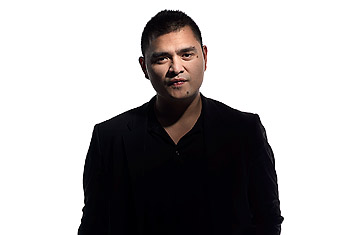
Jose Antonio Vargas
(4 of 9)
Taking the employment route to a green card means clearing a pretty high bar if you have an employer who's willing to hire you. There are different levels of priority, with preference given to people with job skills considered crucial, such as specialized medical professionals, advanced-degree holders and executives of multinational companies. There's no waiting list for those. If you don't qualify for a green card, you may be able to secure one of the few kinds of temporary work visas — including the now famous H1-B visas that are common in Silicon Valley. For those already in the U.S. without documentation — those who have sneaked across a border or overstayed a temporary visa — it's even more complicated. Options are extremely limited. One route is to marry a U.S. citizen, but it's not as easy as the movies would have you think. The process can take years, especially if a sham marriage is suspected. I couldn't marry my way into citizenship even if I wanted to. I'm gay. Same-sex marriage is not recognized by the federal government — explicitly so, ever since Congress passed the Defense of Marriage Act. From the government's perspective, for me to pursue a path to legalization now, I would have to leave the U.S., return to the Philippines and hope to qualify via employment, since I don't have any qualifying family members here. But because I have admitted to being in the U.S. illegally, I would be subject to a 10-year bar before any application would be considered.
The long-stalled Dream Act is the best hope for many young people. The original 2001 version would have created a path to legal status — effectively a green card — for undocumented people age 21 and under who had graduated from high school and resided in the U.S. for five years. As the bill stalled in Congress and Dreamers got older, the age requirement went up, getting as high as 35. Rubio is expected to introduce his own variation, granting nonimmigrant visas so Dreamers could legally stay in the U.S., go to school and work. Its prospects are dim in a gridlocked Congress. Obama, meanwhile, is said to be weighing an Executive Order that would halt deportation of Dream Act — eligible youth and provide them with work permits. Under both Rubio's bill (details of which are not yet confirmed) and Obama's Executive Order (which is being studied), Dreamers could become legal residents. However, both proposals are only the first steps of a longer journey to citizenship.
'Why did you get your driver's license when you knew it wasn't legal?
Do you think you belong to a special class of people who can break any laws they please?"
These were the questions of a polite, mild-mannered man named Konrad Sosnow, who I later learned was a lawyer. In late March, Sosnow and I participated in what was billed as a "civility roundtable" on immigration in my adopted hometown of Mountain View, Calif. About 120 people attended. Sosnow had read my coming-out story and wanted to know why I had such disregard for laws.
